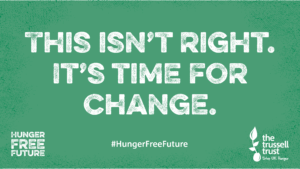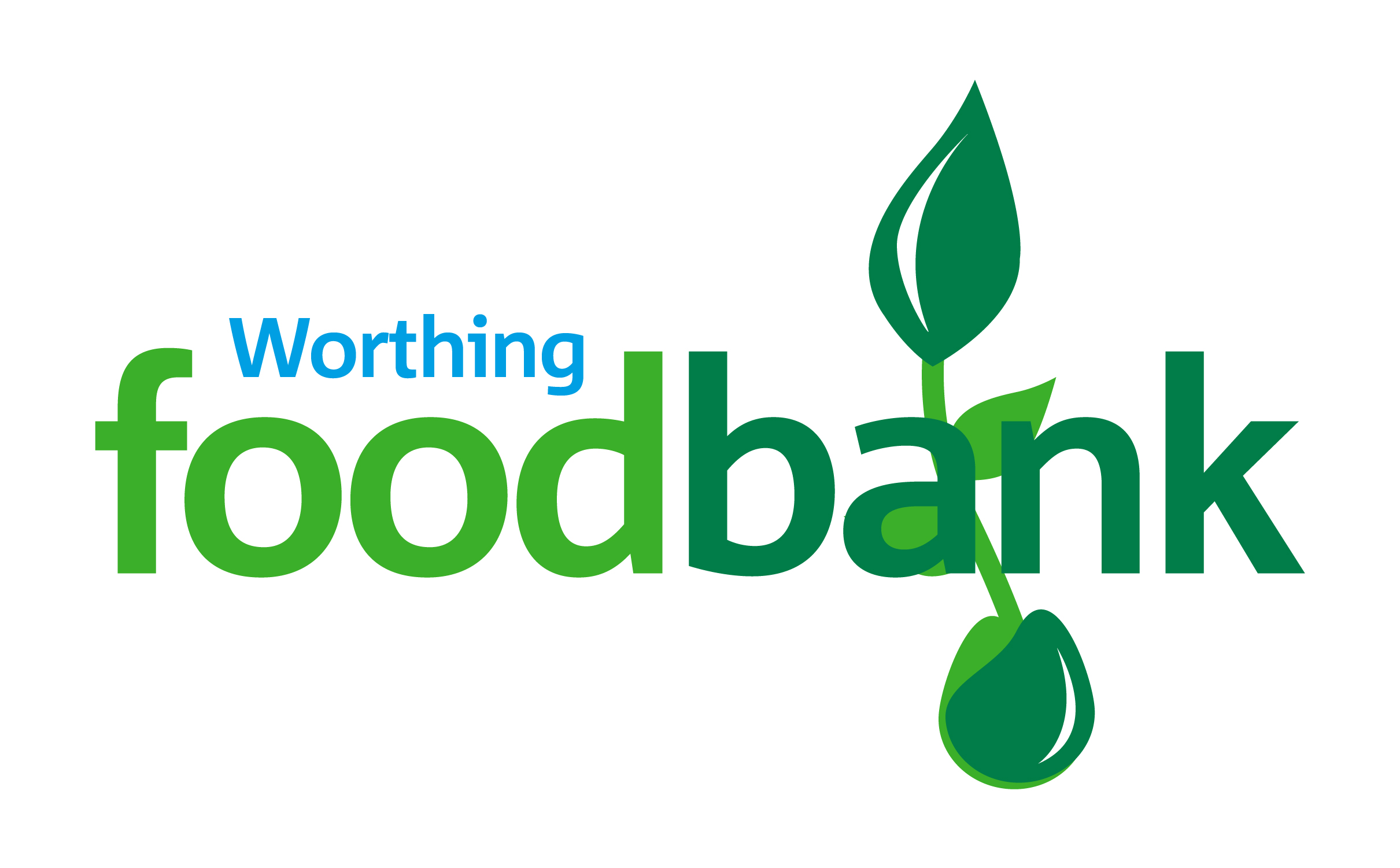
Over the last year food banks in the Trussell Trust network have been at the frontline of the national emergency caused by the Covid-19 pandemic. More people than ever have been tipped into financial crisis and a record six million people are currently receiving Universal Credit. Today’s figures from the Trussell Trust show just how precarious people’s finances have been.
In the last year, a record 2.5 million emergency food parcels were distributed to people in crisis by food banks in the Trussell Trust network. A 33% increase on the previous year and a devastating 128% increase on the same period five years ago (2015/16). Without the hard work and dedication of thousands of food bank volunteers and staff, at over a thousand locations across the UK, the impact of the pandemic on hundreds of thousands of people would have been even more severe.
However, at the Trussell Trust we know that the support provided by food banks can only do so much. We must tackle the underlying drivers of need for food banks. Core to the issue is a fundamental lack of income – 94% of people referred to food banks are destitute meaning their income is not sufficient to afford the absolute essentials. This cannot be solved by simply supporting people with emergency food.
Years of exponential growth in need for food banks, and the gradual erosion of financial security for people on the lowest incomes has been brought into stark focus in the last year. We cannot continue like this; this is why we are calling on all levels of government to act and develop a plan to end the need for food banks once and for all.
The last year shines a light on years of increases in need for food banks.
Our latest figures show that over 2.5 million emergency food parcels were distributed to people in crisis in the last year, with almost one million distributed to children. That is respectively a 33% and 36% on the previous year. However, food banks in the Trussell Trust network have long seen the impact of the building crisis of destitution across the UK. Before the pandemic food banks had reported a 75% increase in same period five years previously (2014/15 to 2019/20). This has now increased further with the most recent figures representing a 128% (total) and 135% (to children) on the same period five years ago.
Number of emergency food parcels distributed by food banks in the Trussell Trust network by financial year.
Pandemic hits some groups hardest.
Children and households with children have long been more likely to be supported by food banks than all adults and households without children. Last year was no exception, across 2020/21, despite making up just 20% of the UK population, 39% of parcels went to children aged 0-16. Over the last year the number of parcels distributed to children increased by 36% compared with a 32% increase to adults.
Younger people have been more at risk of needing support from a food bank in the last year than other age groups, which is consistent with the economic impact of the crisis, which has mainly been felt by younger working age people. Close to two in three (62%) of people referred to food banks in June or July were aged 25-44, up from 53% in early 2020, and significantly higher than the UK population (33%).
We also know that people with No Recourse to Public Funds visa conditions have struggled this year if they have lost employment, and therefore have no other financial support to draw on. The proportion of people born outside of Europe referred to foodbanks increased from 7% in early 2020 to 18% in the summer of 2020.
The support food banks in the Trussell Trust network provide is just the tip of the iceberg.
Many other organisations, community groups, and individuals have stepped up to support people during the crisis. Schools have previously provided food to pupils but the scale of this has drastically expanded in the last year. In February 2021 one in five (18%) teachers reported that their school had started a food bank.
Many new food banks have been established in the last year to meet the explosion in need. The Independent Food Aid Network (IFAN), which represents more than 500 independent food banks across the UK, has identified at least 1,034 independent food banks operating in the UK in addition to food banks in the Trussell Trust network and those run by the Salvation Army and schools. Their latest UK-wide data showed an 110% increase in need for emergency food parcels, when comparing February to November 2020 with the same period in 2019.
What will the next year look like?
As we look to the future there are reasons to be optimistic. The vaccine programme continues apace, and the unlocking of the economy will allow many people to get back to some normality in the coming months. We have seen communities rise to the challenges faced with compassion and care. It has also shown that governments can act decisively to make huge changes to the way we look after each other.
However, we know that there will be tough times ahead. Months of reduced pay have cut down people’s savings to the bare bones putting them at risk of destitution, and unemployment is set to rise as the furlough scheme is wound down.
Despite a record number of people currently being supported, the short-term changes to the social security system that have protected so many over the last year, including the £20 uplift to Universal Credit that has acted as a lifeline to so many, are set to be withdrawn this autumn.
We cannot allow emergency food to become part of the fabric of our communities. When one person goes hungry, our whole society is weaker. It’s time to build a hunger free future – a more dignified and just society where everyone has enough money for the essentials. Now is the time for action.
All levels of government need to act – that’s why we’re calling on candidates standing in the upcoming May elections across England, Scotland, and Wales to commit to working to end the need for food banks and developing a plan to do so, if elected. The UK Government also need to set out a plan to end the need for food banks including ensuring that our social security system to work for all of those that need it in the coming year and beyond.
We are asking you, the public, to write to your local candidates standing for election on 6 May to ask them to make this pledge and stand for change. Together we can take action now to build a hunger free future.

